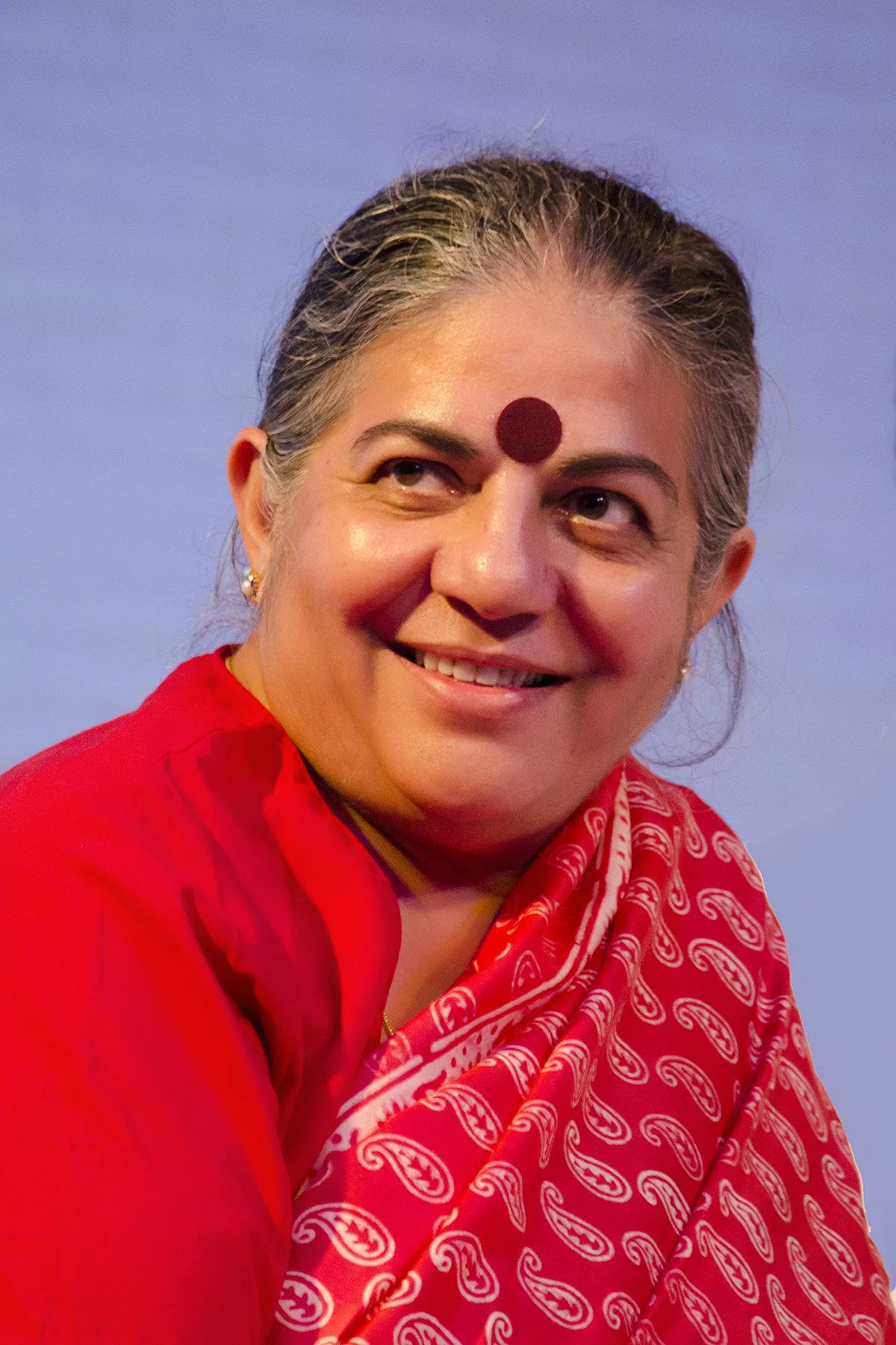 1.
1. Vandana Shiva was born on 5 November 1952 and is an Indian scholar, environmental activist, food sovereignty advocate, ecofeminist and anti-globalization author.

 1.
1. Vandana Shiva was born on 5 November 1952 and is an Indian scholar, environmental activist, food sovereignty advocate, ecofeminist and anti-globalization author.
Vandana Shiva is often referred to as "Gandhi of grain" for her activism associated with the anti-GMO movement.
Vandana Shiva is one of the leaders and board members of the International Forum on Globalization, and a figure of the anti-globalisation movement.
Vandana Shiva has argued in favour of many traditional practices, as in her interview in the book Vedic Ecology.
Vandana Shiva is a member of the scientific committee of the Fundacion IDEAS, Spain's Socialist Party's think tank.
Vandana Shiva is a member of the International Organization for a Participatory Society.
Vandana Shiva's father was a conservator of forests, and her mother was a farmer with a love for nature.
Vandana Shiva was educated at St Mary's Convent High School, Nainital, and at the Convent of Jesus and Mary, Dehradun.
Vandana Shiva studied physics at Punjab University in Chandigarh, graduating with a Bachelor of Science degree in 1972.
Vandana Shiva's dissertation was titled "Hidden variables and locality in quantum theory" in which she discussed the mathematical and philosophical implications of hidden variable theories that fall outside of the purview of Bell's theorem.
Vandana Shiva later went on to pursue interdisciplinary research in science, technology, and environmental policy at the Indian Institute of Science and the Indian Institute of Management in Bangalore.
Vandana Shiva has written and spoken extensively about advances in the fields of agriculture and food.
Intellectual property rights, biodiversity, biotechnology, bioethics, and genetic engineering are among the fields where Vandana Shiva has fought through activist campaigns.
Vandana Shiva has assisted grassroots organisations of the Green movement in Africa, Asia, Latin America, Ireland, Switzerland, and Austria with opposition to advances in agricultural development via genetic engineering.
In 2004 Vandana Shiva started Bija Vidyapeeth, an international college for sustainable living in Doon Valley, Uttarakhand, in collaboration with Schumacher College, UK.
Vandana Shiva received the Right Livelihood Award in 1993, an award established by Swedish-German philanthropist Jakob von Uexkull.
Vandana Shiva's book Making Peace With the Earth discusses biodiversity and the relationship between communities and nature.
Vandana Shiva chairs the Commission on the Future of Food set up by the Region of Tuscany in Italy and is a member of the Scientific Committee that advised former prime minister Zapatero of Spain.
Vandana Shiva is a member of the Steering Committee of the Indian People's Campaign Against WTO.
Vandana Shiva is a councilor of the World Future Council.
Vandana Shiva serves on Government of India Committees on Organic Farming.
Vandana Shiva participated in the Stock Exchange of Visions project in 2007.
Vandana Shiva is a founding councillor of the World Future Council.
Vandana Shiva has campaigned against the implementation of the WTO 1994 Trade Related Intellectual Property Rights agreement, which broadens the scope of patents to include life forms.
Vandana Shiva has criticised the agreement as having close ties with the corporate sector and opening the door to further patents on life.
In 2005, Vandana Shiva's was one of the three organisations that won a 10-year battle in the European Patent Office against the biopiracy of Neem by the US Department of Agriculture and the corporation WR Grace.
Vandana Shiva has claimed that the women of Bengal grow and eat 150 greens which can do the same, while environmental consultant Patrick Moore suggests that most of these 250 million children do not eat much else than a bowl of rice a day.
Vandana Shiva plays a major role in the global ecofeminist movement.
Vandana Shiva co-wrote the book Ecofeminism in 1993 with "German anarchist and radical feminist sociologist" Maria Mies.
In June 2014, Indian and international media reported that Navdanya and Vandana Shiva were named in a leaked, classified report by India's Intelligence Bureau, which was prepared for the Indian Prime Minister's Office.
Investigative journalist Michael Specter, in an article in The New Yorker on 25 August 2014 called "Seeds of Doubt", raised concerns over a number of Vandana Shiva's claims regarding GMOs and some of her campaigning methods.
Vandana Shiva wrote to the international relief agency Oxfam to say that she hoped it wasn't planning to send genetically modified foods to feed the starving survivors.
In 1998 Vandana Shiva was protesting against Bt cotton program in India, calling it "seeds of suicide, seeds of slavery, seeds of despair", claiming she was protecting the farmers.
Vandana Shiva's "Operation Cremate Monsanto" had spectacularly failed, its anti-GM stance borrowed from Western intellectuals had made no headway with Indian farmers, who showed they were not passive recipients of either technology or propaganda, but could take an active role in shaping their lives.
Vandana Shiva assigns the so-called scientific progress of the last centuries to the advance of capitalism, a time when the new exploitation needed a knowledge that would justify it.
Vandana Shiva appeared in a documentary film about the Dalai Lama, entitled Dalai Lama Renaissance.
In 2010, Vandana Shiva was interviewed in a documentary about honeybees and colony collapse disorder, entitled Queen of the Sun.
Vandana Shiva appears in the French films Demain and Solutions locales pour un desordre global.
Vandana Shiva was recognized as one of the BBC's 100 women of 2019.